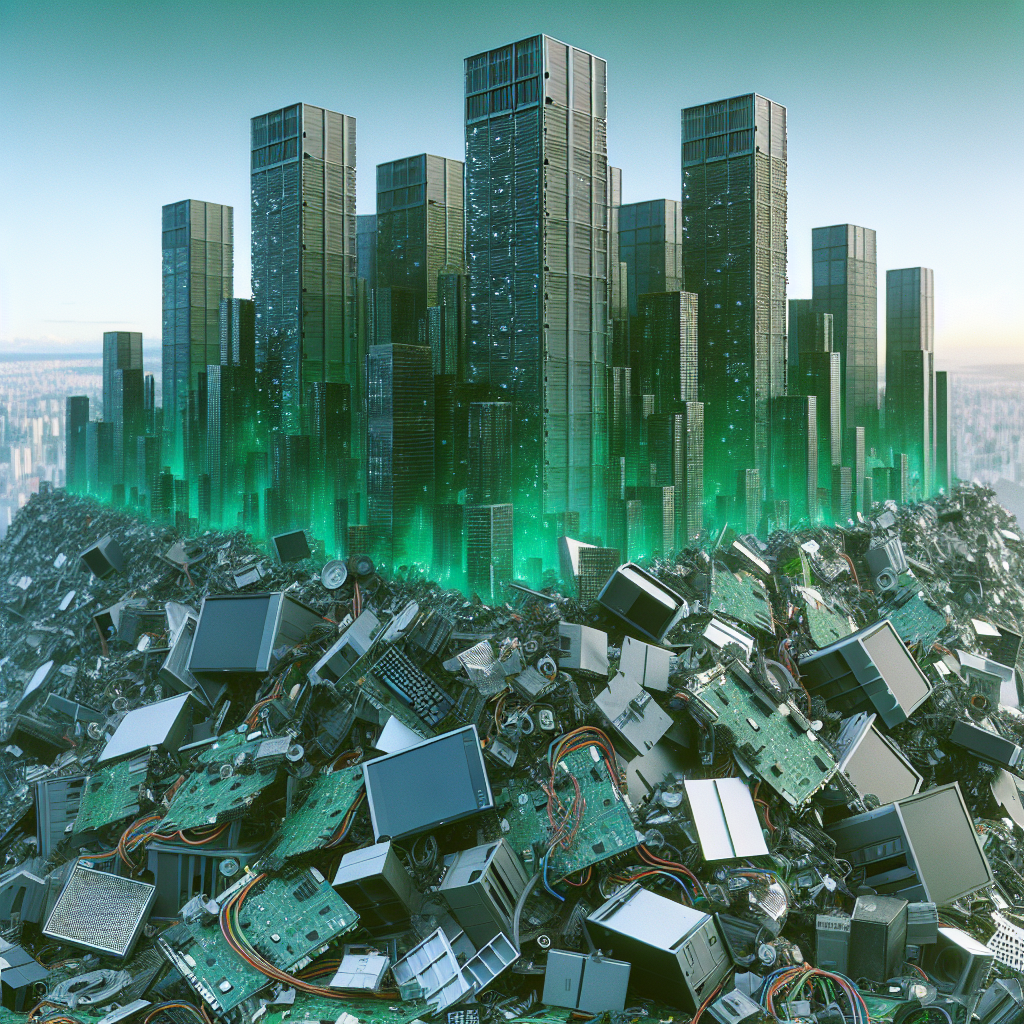Blog Ecobraz Eigre

Overview of the volume of electronic waste generated by data centers in Brazil
Introduction
The accelerated growth of the information technology sector in Brazil has driven the expansion of data centers, crucial infrastructures for supporting digital services. However, this expansion directly results in an increase in the volume of electronic waste generated by this equipment, requiring special attention to the management and proper disposal of the waste produced.
Volume and composition of electronic waste from data centers
Data centers generate electronic waste mainly from equipment such as servers, switches, storage, nobreaks and associated cooling devices. According to data from the National Solid Waste Management Information System (SINIR) - sinir.gov.br - the estimated annual growth in the volume of electronic waste from the information technology sector is significant, driven by hardware upgrades and accelerated equipment obsolescence.
According to the SINIR report, the volume of electronic waste in Brazil will exceed 1.5 million tons per year by 2022, with the portion attributed to data centers representing a significant fraction due to the nature of the equipment used and the sector's high technological turnover.
Legislation and legal obligations for the management of electronic waste
The National Solid Waste Policy (PNRS), established by Law No. 12.305/2010 (planalto.gov.br), establishes guidelines for the proper management of waste, including electronic waste. Article 33 of the law highlights shared responsibility for the life cycle of products, imposing on generators, owners, manufacturers, importers and traders the obligation to promote the environmentally appropriate disposal of waste.
In addition, SINIR, created by Decree No. 10.936/2022 (sinir.gov.br), is an essential government tool for recording and monitoring the generation, packaging, transport and final disposal of solid waste, including electronic waste generated by data centers.
Best practices for the safe collection and disposal of electronic waste in data centers
The disposal of electronic waste by data centers requires strict procedures to ensure information security and environmental protection. To avoid risks, we recommend a service specializing in electronic waste collection with certification and proven experience, which ensures that the components are transported and disposed of properly.
For devices that store sensitive data, such as hard disk drives (HDDs) and digital media, safe and complete sanitization of the contents is essential, a procedure in line with the ABNT NBR ISO/IEC 27040 information security standard. Certified services carry out the destruction or secure sanitization of these components, guaranteeing legal compliance and protection against possible security incidents. See more information on safe disposal of hard drives.
Environmental and social impacts of electronic waste from data centers
Inadequate disposal of electronic waste causes soil, water and air contamination due to the heavy materials and toxic substances present in obsolete equipment. Proper waste management minimizes these impacts, promoting the recycling and reuse of components whenever possible.
Furthermore, compliance with legislation demonstrates a commitment to sustainability and social responsibility, aspects that are increasingly valued in sectors that demand high energy and technological consumption.
Conclusion
The panorama of electronic waste generated by data centers in Brazil highlights the growing challenge of properly managing this waste, considering the rapid pace of technological obsolescence. Alignment with the National Solid Waste Policy and SINIR, together with the adoption of certified and safe collection and disposal practices, is essential for minimizing environmental impacts and ensuring information security.
Knowledge of legal obligations and the use of specialized services for electronic waste collection and for the safe disposal of hard drives are fundamental for managers and decision-makers in the sector.

Deixe um comentário
O seu endereço de e-mail não será publicado. Campos obrigatórios são marcados com *